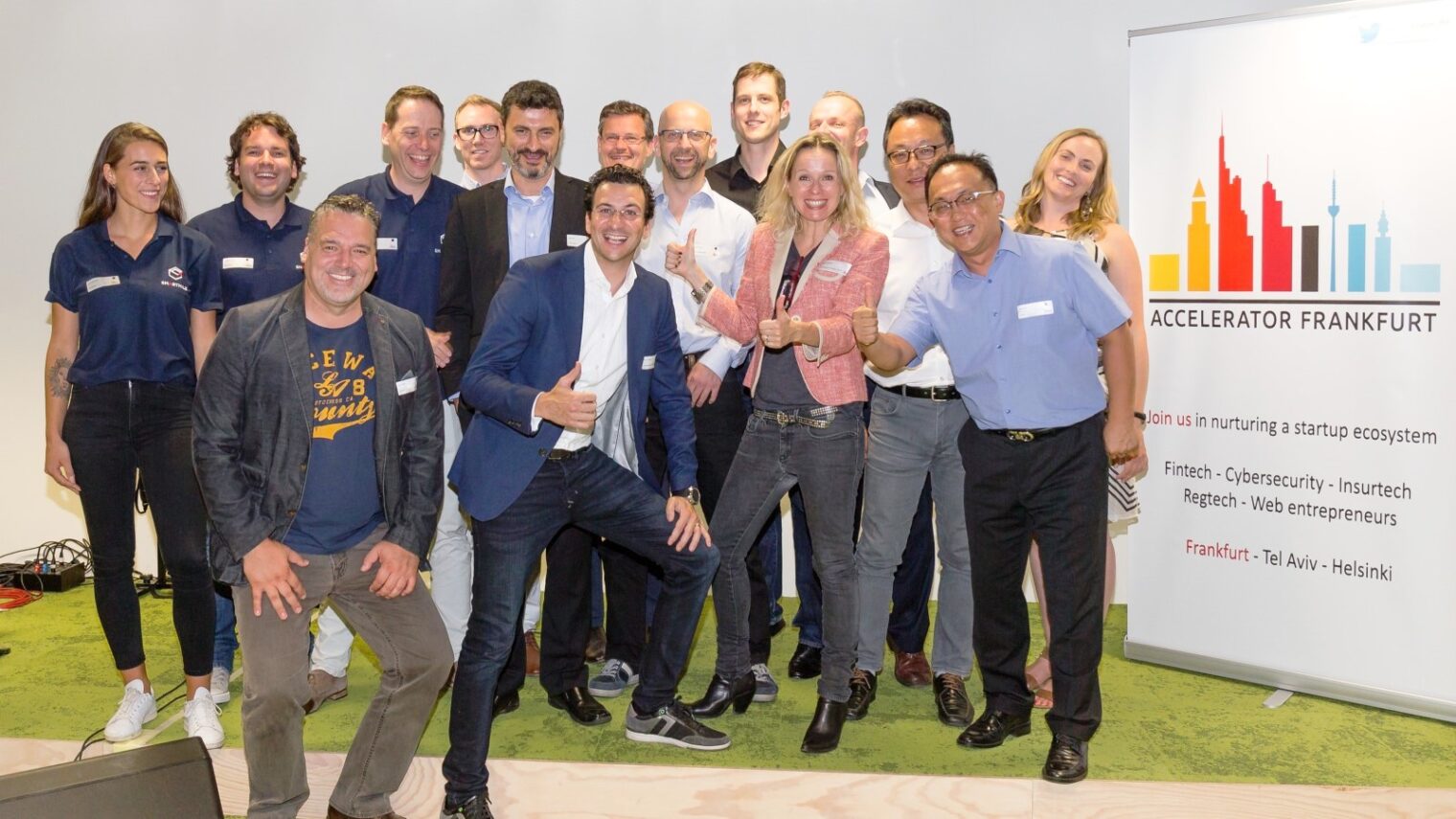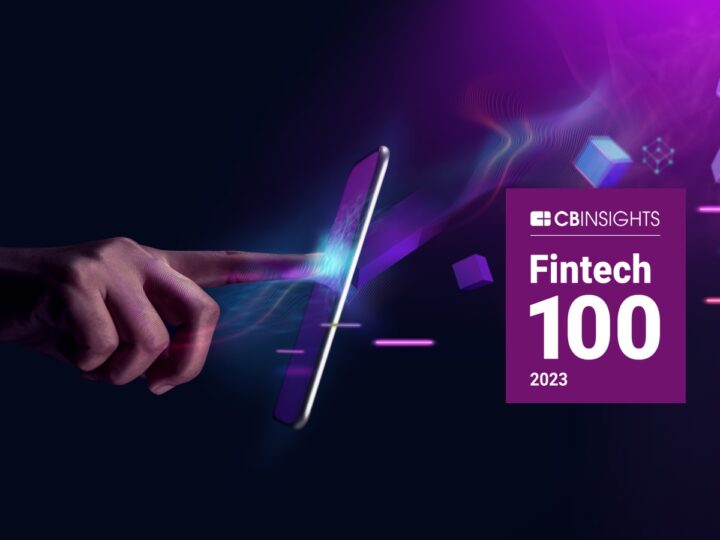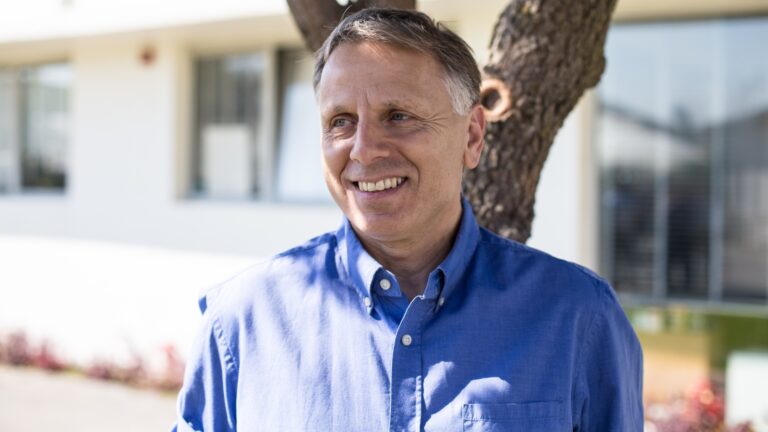Coming from a small country, startups in Israel have to think about overseas markets from day one. Those in financial technology look to the strongest ecosystems in this sector — London and Frankfurt.
Ram Shoham from Israel and Maria Pennanen from Finland founded Accelerator Frankfurt to provide that foot in the door for handpicked B2B fintech startups. Each cohort of eight, by design, includes two or three Israeli startups.
Frankfurt, the unofficial capital of banking in mainland Europe, is home to more than 200 banks eager for fintech innovation, including the European Central Bank.
“Fintech and cybersecurity decision-makers are based here. If you need to sell a product to a large bank, you need to be where the banks are,” says Shoham.
The accelerator is kicking off its third four-month program with a fintech road show in Frankfurt on September 26-27 in cooperation with the Israel Export Institute and the Embassy of Israel in Berlin.
The previous group included the Israeli startups Adjesty, a cloud-based machine learning solution for online advertising; and Aero-Plan, an online marketplace for medical transport services such as insurance.
“Israeli entrepreneurs add a lot to the program. The Israeli way of doing things is full-on thinking out of the box and the German way of doing things is process-oriented and organized. When you mix them together great things happen,” says Shoham.
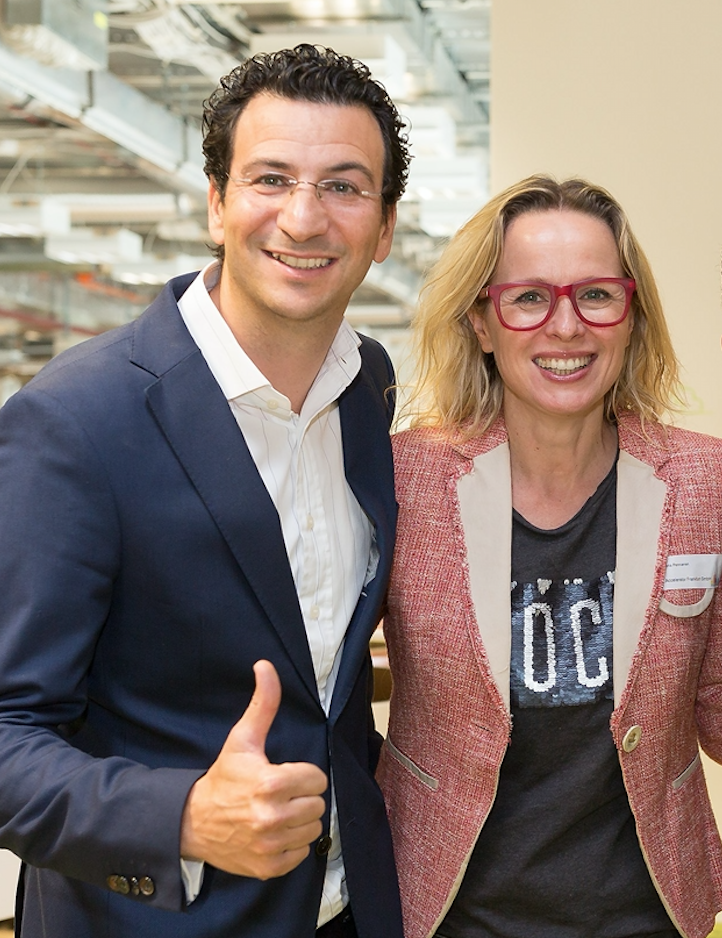
Accelerator Frankfurt was the first business accelerator in Frankfurt and now there’s only one additional accelerator in the city. By contrast, Israel boasts more than 260 accelerators.
“Germans are very risk-averse,” explains Pennanen, an angel investor, chemical engineer and organizational psychologist with a master’s in business administration and work experience across the globe.
As newcomers from small countries, she and Shoham had no such aversion and saw great potential in Frankfurt, especially now that Brexit has made some startups wary of London.
“Maria and I have been mentors at accelerators and worked with accelerators in Israel. I asked 20 accelerators to set up a branch in Frankfurt that I could run and none had interest. So we did it ourselves,” Shoham tells ISRAEL21c.
Learning from failure
Born in Israel to an Israeli diplomat, Ram Shoham spent most of his childhood in Mexico and Spain. He returned to Israel at 16, served in an army computer unit and then joined his parents in The Netherlands, where he earned a bachelor’s in marketing and a master’s in finance.
During the 1990s he tried to make a living from two passions, surfing and entrepreneurship, and failed at both. But those disappointments propelled him forward.
“I learned how you can waste a lot of precious time trying to get a startup off the ground. And I saw how accelerators can help speed up either the failure or the success,” he says.
Shoham found his success in Hong Kong, where he worked for 10 years in investment banking and corporate finance. In 2009 he began helping budding entrepreneurs with business plans and investor connections.
Eventually he started a management consultancy in Hong Kong, where he met Pennanen. She’d worked in Denmark, Switzerland, France and Frankfurt previously and also had established her own startup consultancy in Hong Kong in 2011. Both were bullish on fintech.
“Maria and I were doing similar activities in China, so instead of competing we decided to join forces in 2013,” says Shoham. “She has the Scandinavian connections and I have the Israeli connections. We could have chosen lots of different cities but Frankfurt made the most sense. There’s a lot of wealth here and it’s an attractive market from which to start entering Europe.”
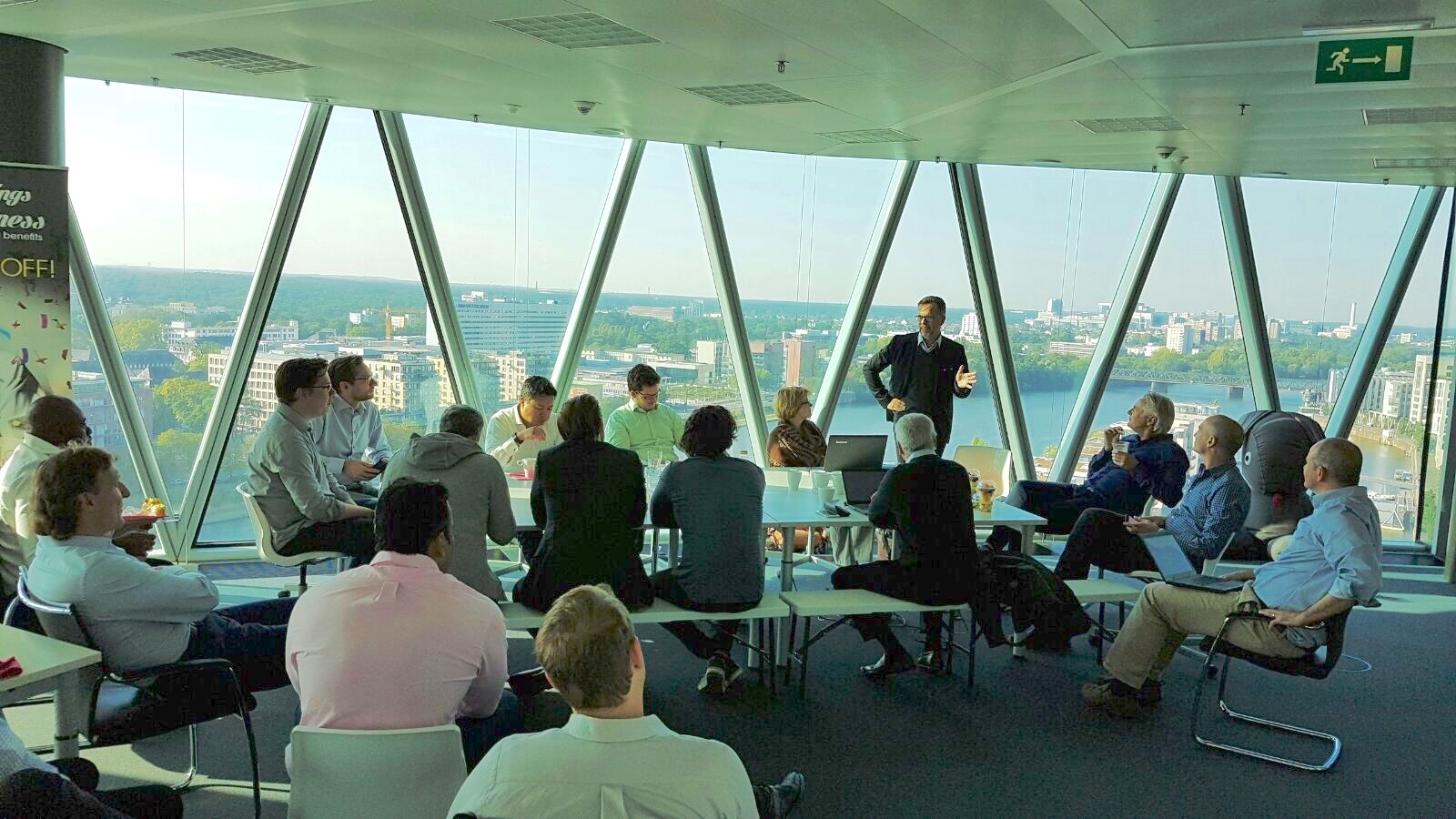
Accelerator Frankfurt develops a product wish list by talking to local banks and companies, and involves those contacts in identifying startup applicants with products that could fulfill their wishes. It also cooperates closely with FrankfurtRheinMain, a government-run regional investment agency working to attract startups from all over the globe and Israel in particular.
About 500 late-stage startups are interviewed each year and up to eight per cohort are accepted.
In contrast to the mostly corporate-run accelerators in Europe, Accelerator Frankfurt is a private initiative. “We take a consulting fee if they get an investor through us and a small commission if they get a client through us. If they get any of this on their own we don’t take a cut,” explains Pennanen.
“So we only bring in startups that we feel we can sell to a large corporate and get them investment. If we don’t succeed we don’t get paid. In a way we’re in the same boat as the startups.”
Their first group had three Israeli startups: cybersecurity firm Fenror7; BeeEye, providing financial indicators and prediction models based on online consumer presence; and behavioral biometrics company SecuredTouch. A six-month pilot of Fenror7 at a major Frankfurt bank resulted in a large order and an investment.
“A hot topic now is forex risk solutions, so we’re looking at startups in this area,” says Shoham, who comes to Israel on scouting trips every six weeks. The next program starts on September 25.
For more information, click here.




